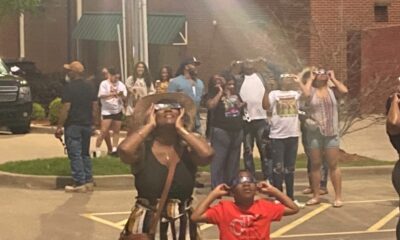Black History
Auburn Avenue: The Richest “Negro Street in the World”

During the decades when Black people were being suppressed and subjugated by racist laws, many fought to carve out their own place in a segregated society. The results were black-owned businesses, churches and clubs. Some led the way to establish their own neighborhoods, organizations and newspapers. They built their own banks, schools and parks. And these became legacies of their fight and their success. But many of these legacies have been neglected and forgotten. For Black History Month, TheVillageCelebration will look at some of these abandoned legacies.
At a time when Black people were barred from white-owned restaurants and hotels, and when they couldn’t buy decent burial insurance or purchase property, they came together and built their own.
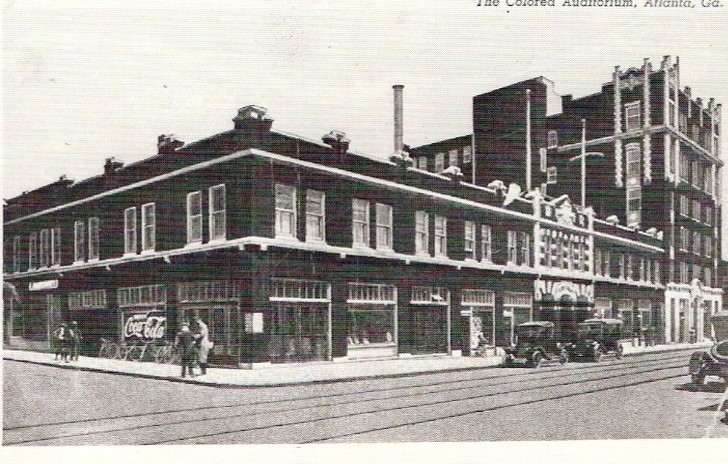
On a stretch of street two-miles long and sixty-feet wide, they established an empire that would become known as the wealthiest African American neighborhood in the world.
For years Auburn Avenue was the epicenter of African American business acumen, excellence and innovation, according to a 2017 article by The Atlanta Journal-Constitution. The concentration of wealth and influence was unparalleled, the AJC reported.
African Americans had their own doctors, dentists and dry cleaners. They opened their own banks, barbershops and beauty parlors. From drug stores, grocery and flower shops to insurance companies, churches and photography studios, Black-owned businesses flourished.
And in 1956, Fortune Magazine named Auburn Avenue, “The richest Negro street in the World.” But with integration, many left and Auburn Avenue became a shadow of itself – and what was once a magnet of black enterprise became another symbol of what happens when people abandon their own.
“For black people, the street was a symbol of pride,” said pastor and historian Dr. Herman “Skip” Mason, Jr. “It was a street of pride and it serviced the community, and everybody patronized Auburn Avenue.”
Back then, he said, “We served our own, we took care of our own, we patronized our own people.”
Dan Moore, founder and president of the APEX Museum on Auburn Avenue, said what Black people accomplished on Auburn Avenue back then took courage.
“Black people had a vision and wasn’t afraid to go against the grain,” Moore said. “You had men and women, who had courage, step out and do their thing. They couldn’t buy property on other streets, so they came together and started their own businesses on Auburn Avenue.”
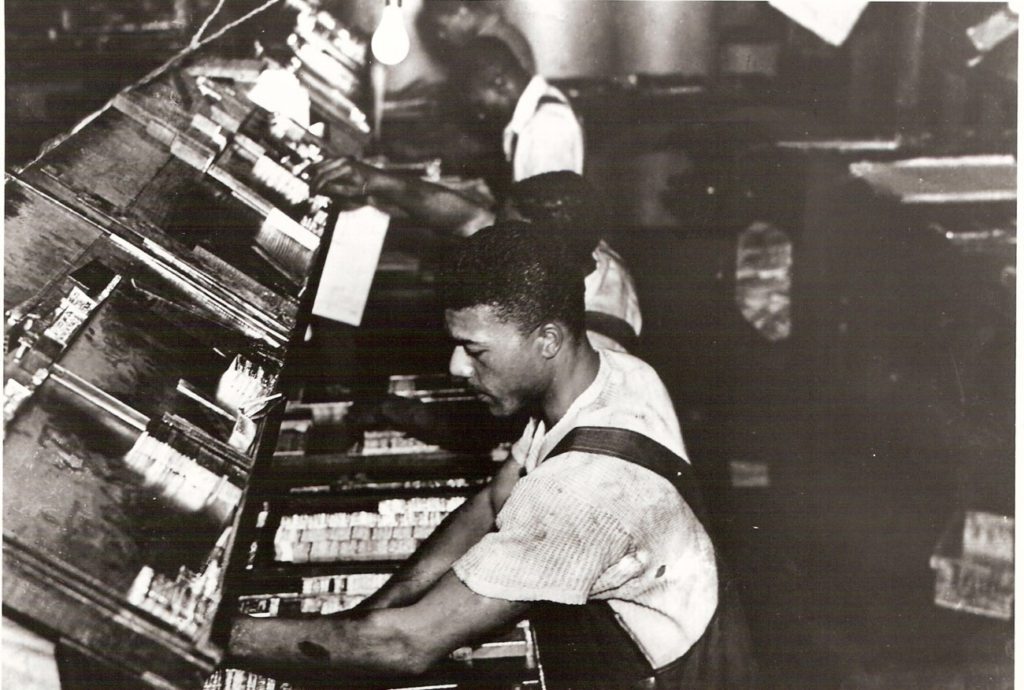
With its hotels, restaurants and nightclubs, Auburn Avenue was a commercial center of Black Atlanta. It saw the first Black daily newspaper (Atlanta Daily World), America’s first Black-owned radio station (WERD) and the first black-owned life insurance company (Atlanta Life), which was started by the city’s first black millionaire, Alonzo Herndon, a former slave.
The nightclub, the Peacock Lounge, hosted famous acts from Gladys Knight, B.B. King and The Four Tops to Little Richard, Cab Calloway, Aretha Franklin and Ray Charles, according to online reports. The nightlife on Auburn Avenue sparkled as men and women came out dressed in style to walk down the avenue.
Such was the success of Auburn Avenue that it attracted Blacks from other cities and states, Moore said. It also became a center for empowerment.
Home to History
Coined “Sweet Auburn” by businessman and Civil Rights activist John Wesley Dobbs, the maternal grandfather of Atlanta’s first African American mayor, Maynard Jackson, Auburn Avenue saw the birth of Martin Luther King, Jr., who preached on the avenue alongside his father.
In the 1950s and the 1960s, the Southern Christian Leadership Conference (SCLC), led by King, and Ebenezer Baptist, Wheat Street Baptist, Big Bethel AME and Butler CME churches kept Auburn Avenue as a nexus of social activity and the Civil Rights Movement, according to SoulofAmerica.com.
But by the time Moore arrived in Atlanta in the 1980s, the success of Auburn Avenue was already on the decline and he said integration was one of the main reasons for the change.
“Integration came in and Blacks were allowed to move into other parts of the city, and they abandoned Auburn Avenue,” Moore said. As for the owners, he said, “Most of the businesses, when they realized they were able to move to white neighborhoods, they fled.”
By the 1960s and 1970, many began moving to the suburbs. With the construction of the I-85/75 Freeway, which bisected Sweet Auburn, and the passing of the national Fair Housing Act, many of the black middle class surrounding Sweet Auburn began moving to larger spaces, according to soulofamerica.com.
“Those who helped end segregation, unintentionally helped end Sweet Auburn prosperity,” the online site noted.
The Power of Unity
But something else was lost, Moore said. It was the realization of what Black people can accomplish when they come together.
“We don’t realize the power and the strength we have collectively,” he said.
Still, there were some like Mtamanika Youngblood, who joined the board of the Historic District Development Corp. and worked to help improve Auburn Avenue, which in the 1990s was designated a National Historic District.
And there were some improvements. Atlanta Life Insurance Company rebuilt its headquarters on Auburn Avenue. The Martin Luther King, Jr. Visitor Center was built across from the Center for Non-violent Social Change and the Tomb of Dr. Martin Luther King. Even Ebenezer Baptist Church built a new edifice directly across the street from its old church, named a National Historic Landmark.
And there is also Moore’s APEX Museum, which provides a peep into the history of Auburn Avenue. And the Auburn Avenue Research Library, one of a few nationwide, offers a wealth of information on Black history in America. There is also the Martin Luther King, Jr. birth home, freedom center, grave site and Old Ebenezer Baptist Church that attract more than a million tourists each year.
But the epicenter of Black empowerment and success was gone.
“I’d like to think that we would want the generations of young African Americans who come after us to know their history and the story of incredible accomplishment Sweet Auburn represented at a very difficult time for African-Americans,” Mtamanika Youngblood told the AJC. “The lesson they need to take away is — if we could do that then, what can’t we do now?”

-

 Black History4 months ago
Black History4 months agoThe untold story of a Black woman who founded an Alabama hospital during Jim Crow
-
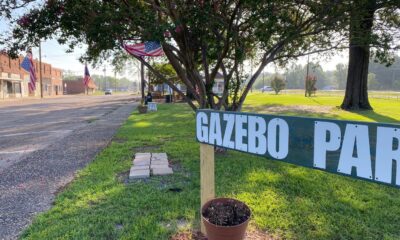
 Featured8 months ago
Featured8 months ago‘No Closure’ In Town Where Five Black Residents Were Either Murdered, Died Suspiciously Or Are Missing
-
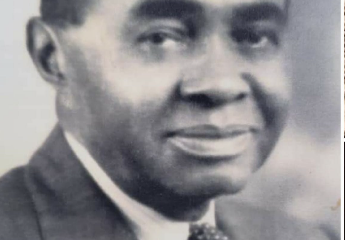
 Black History9 months ago
Black History9 months agoBlack History Lost and Found: New Research Pieces Together the Life of Prominent Texas Surgeon and Activist
-

 Featured8 months ago
Featured8 months agoFounder of “The Folding Chair” Podcast Calls Montgomery’s Brawl ‘Karma’
-

 Featured8 months ago
Featured8 months agoThousands ‘Live Their Dream’ During National Black Business Month
-

 Featured10 months ago
Featured10 months agoJuneteenth And ‘246 Years Of Free Labor’ Are Key To Conversations About Reparations


